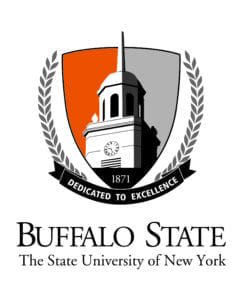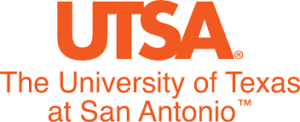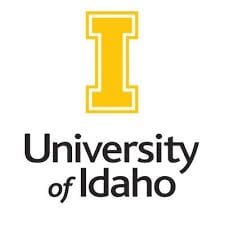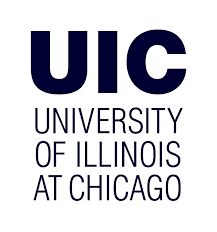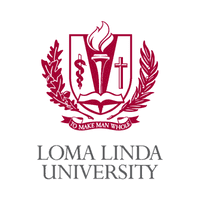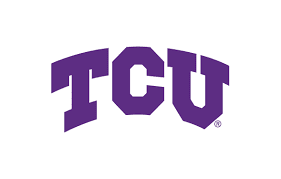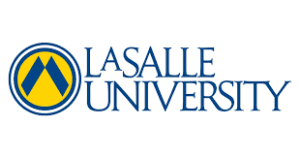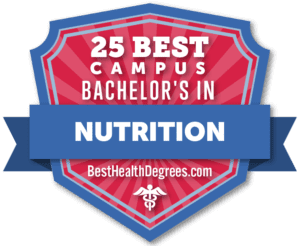
Key Takeaways:
- Wayne State University and Cal State LA offer top nutrition degree programs.
- Nutrition degree programs focus on teaching the science of food and its impact on health, disease prevention, and human performance.
- Graduates with a nutrition degree can pursue careers in dietetics, public health, research, or food service management.
- Many programs offer specialized tracks such as sports nutrition, clinical nutrition, or food science, allowing students to tailor their studies to career goals.
Food is a basic human need and, for many of us, one of the most important. In the U.S. we rely on trained nutritionists and dietitians from the best nutrition degree programs to educate us on the right foods to eat, to keep our food supplies safe, and to help combat illness and disease with nutrition.
According to U.S. News and World Report, Nutrition and Dietitians rank this career #24 in “Best Healthcare Jobs” and #88 “Best Jobs.” The Bureau of Labor Statistics (BLS) reports job growth for this category at 11% which is much faster than average. The BLS also suggests salaries range from $58,000-$66,000 depending on location and job duties.
There are several online undergraduate degree options and Best Health Degrees has researched 25 accredited nutrition programs.
It should be noted that beginning January 1, 2024, registered dietitians will be required to hold a master’s degree for certification. More nutrition majors information on this requirement is in the FAQ section.
Our Method: What Makes the Best Nutrition Program?
For our ranking of the best traditional, on-campus Nutrition Dietetics programs, Best Health Degrees editors researched accredited, respected institutions focused on quality and opportunity. Programs are ranked according to their reputation, salary potential, and tuition cost, using data from U.S. News, Niche, IPEDS, and College Scorecard.
1. Wayne State University
There are three Nutrition and Food Sciences degree options at Wayne State University. These degrees are intended for those wanting to 1) major in food science and nutrition and enter the healthcare profession, 2) enter a dietetic field, or 3) students wanting to enter a non-technical career in other food businesses. The Bachelor of Arts prepares students to work in food service management in schools, hospitals, and commercial or industrial food services. Students wanting a career in food quality control, working in public health, or food research will want to look at the Bachelor of Science. Finally, the Bachelor of Science in Dietetics is designed for students wishing to obtain the Registered Dietician (RD) certification.
Located in the heart of Detroit, Wayne State University has a diverse student enrollment and has been providing education since 1868. The campus has been named one of the 50 safest in the nation. U.S. News and World Report consider this one of its “Most Innovative Schools” and “Best Value Schools.” The school reports that 71% of its students receive some sort of financial aid and the average need-based scholarship or grant is a little over $7,000.
Degree Offered: B.A. and B.S. in Nutrition and Food Sciences; B.S. in Dietetics
Learn more about the nutrition bachelor’s here!
2. California State University Los Angeles
Students enrolled in the Bachelor of Science in Nutritional Science of the School of Kinesiology and Nutritional Science at Cal State LA will be considered to be in the Didactic Program in Dietetics (DPD). This program is designed to allow students to enter the food sciences profession in dietetics, nutrition, or food services. The curriculum requires 120 hours for completion and requires both general education and prerequisite courses in addition to the major’s topics. Core subjects include nutrition therapy, human nutrition, assessment, institutional food services, and more. Studies in anatomy and physiology, organic chemistry, and biochemistry are also required.
Cal State LA was established in 1947 in the heart of Los Angeles and ranks in U.S. News and World Report’s top 20 rankings in “Best Value Schools”, “Top Public Schools”, and “Best Colleges for Veterans.” Washington Monthly includes the university in its “Best Bang for the Buck (West)” category.
Degree Offered: B.S. in Nutritional Sciences
Learn more about the nutrition bachelor’s here!
3. Purdue University

There are multiple options with Purdue University’s Bachelor of Science in Nutrition Science degree. Depending on the career objectives, students in this program can choose majors in Nutrition and Dietetics, Nutrition, Health, and Health, Nutrition Science, and Foods and Nutrition in Business*. The degree lays a solid base of physiology, biochemistry, organic chemistry, and organic chemistry to complement the chosen major.
General education topics in the humanities, social studies, English, etc., are part of the overall 120 credit hour curriculum. Purdue University’s Department of Nutrition Science is nationally known for its research and academic programs over its remarkable 110-year history. The department supports undergraduate research opportunities both institutionally and outside institutes. Internships are also available.
Purdue University consistently rates highly in rankings by U.S. News and World Report, The Princeton Review, Niche, and Forbes Magazine.
*Food and Nutrition major is no longer accepting students
Degree Offered: B.S. in Nutrition Science
Learn more about the nutrition bachelor’s here!
4. University of North Carolina at Chapel Hill
The Bachelor of Science in Public Health program at the University of North Carolina at Chapel Hill has a nutrition concentration. Offered through UNC-CH’s nationally renowned Nutrition Department, this program concentrates on nutrition and human epidemiological considerations. The degree requires the general education “Making Connections Curriculum” prior to core nutritional courses. In this program, you’ll study biochemistry, epidemiology and foundations of public health, human metabolism, human anatomy and physiology, human nutrition and more. Students can also choose a B.S.P.H.-M.S. (master’s degree) option which allows students to participate in nutritional research.
It would take a while to name all of UNC-CH’s rankings. The university receives high marks from Niche (#7 Top Schools), U.S. News and World Report (#5 Top Public Schools), and Forbes (#8 Top Public Colleges). One of the oldest universities in the U.S., established in 1789, UNC-CH has an impressive 89% graduation rate.
Degree Offered: B.S. in Public Health
Learn more about the nutrition bachelor’s here!
5. University of Minnesota
The Department of Food Science and Nutrition at the University of Minnesota has a robust undergraduate program in Nutrition Sciences. Students who want to pursue a graduate degree in nutrition or a professional career in medicine, pharmacy, etc., will want to review the Nutrition Science track. The Nutrition Studies track is perfect for students interested in nutrition, but who don’t want to take additional science requirements or enroll in the Registered Dietitian track. Students with professional dietician goals, will want to check out the Didactic Program in Dietetics (DPD) which is preparatory to becoming a Registered Dietician (RD) or Registered Dietician Nutritionist (RDN). An accredited dietetic internship is available with the Emily Project (addressing eating disorders) or medical nutrition therapies.
Over 50,000 students are enrolled at this Minnesota flagship institution in the Twin Cities, and 80% graduate in four years. Some significant food science innovations originated at the university including the development of ‘puffed rice’ which help launch the breakfast cereal industry and the creation of K-rations developed during WWII and the precursor to today’s MREs.
Degree Offered: B.S. in Nutrition
Learn more about the nutrition bachelor’s here!
6. North Dakota State University
North Dakota State University has been educating students in Dietetics since 1925. The program offers two options in Dietitian Education Program (DEP) and Dietetic Program in Dietetics (DPD). In 2020, the Health, Nutrition, and Exercise Science department began an accelerated BS/MS for Dietetics and Nutrition degree option. This last program is in response to the upcoming changes in requirements for entry-level dietitians. Students can complete the BS/MS (master’s degree) in five years and have a choice between community nutrition and sports nutrition. Graduates of the BS/MS will be prepared to sit for the Commission on Dietetic Registration exam and complies with the new 2024 standards. Acceptance to the BS/MS program is limited.
The Health, Nutrition, and Exercise Sciences Department operates a unique, student-led cafe, giving students the opportunity to utilize the information they’ve learned in a real-world setting.
Degree Offered: B.S. in Dietetics; B.S./M.S. in Dietetics (accelerated)
Learn more about the nutrition bachelor’s here!
7. University of Montevallo
This Coordinated Program in Dietetics is fully ACEND accredited and qualifies students to sit for the RDN exam. Administered through the Exercise and Nutrition Science (EXNS) Department, the CPD covers topics in physiology, pharmacology, food service systems, metabolism, chemistry, microbiology, and supervised practicum experiences in Community Nutrition, Foodservice Management, and Clinical Nutrition. Graduates receive a BS in Exercise and Nutrition Science with a Nutrition and Wellness concentration.
Located in the center of Alabama, the University of Montevallo is ranked #20 in U.S. News and World Report’s “Most Innovative Schools.” Established in 1896 as a school for women, the University of Montevallo today is a vibrant campus of over 2500 students. The school offers more than 35 degrees with over 75 majors and concentrations. It’s easy to see why the school’s motto is “Small school. Big opportunities.”
Degree Offered: B.S. in Human Nutrition; B.S. in Dietetics
Learn more about the nutrition bachelor’s here!
8. Utica College
This New York College has two Nutrition Science degree tracks. One degree, the BS in Dietetics and Nutrition, prepares students for entry-level registered dietitian nutritionist positions and to sit for the CDR credentialing exam. This ACEND accredited program includes a 1200-hour, supervised internship, required for RD licensure. The second degree, a Bachelor of Science in Nutrition, concentrates on providing students the ability to work in clinical and customer services, medical nutritional therapy, practice management, and have a solid, scientific, foundation in nutrition. This degree is not ACEND accredited.
Utica College was established in Utica, NY in 1946. The school has an 86% acceptance rate and an 11:1 student-teacher ratio. Tuition averages $21,000 annually and 95% of students receive financial aid.
Degree Offered: B.S. in Nutrition
Learn more about the nutrition bachelor’s here!
9. Delta State University
Located in Cleveland, MS, this university has a Bachelor of Science in Family and Consumer Sciences with a concentration in Nutrition and Dietetics which includes an academic curriculum and 1200 hours of supervised experience. Students in this Coordinated Program can sit for the CDR exam and be prepared for an entry-level dietician position. Acceptance into the Coordinated Program is limited to 15 students per year and requires a minimum, overall 2.75 GPA and a 3.0 overall GPA in biological and physical science courses. There is a prerequisite requirement of 75 credit hours for admission. Students will take courses on topics such as General Nutrition, Food Preparation, Lifestyle Nutrition, Medical Nutrition Therapies, and more.
Delta State University is on probationary status by the Accreditation Council for Education in Nutrition and Dietetics (ACEND) dependent on exam pass rates improvement. Prior to being notified of this status, the school had put in place actions to improve exam pass rates. This is a temporary status and the school will report to ACEND in July 2020 of improvements. Note: students are still being accepted into the program and are considered to be enrolled in an accredited program.
Degree Offered: B.S. in Nutrition and Dietetics
Learn more about Delta’s nutrition programs here!
10. The University of Akron
There are two degrees offered by The University of Akron’s School of Nutrition and Dietetics. Students may choose Bachelor’s of Science in Food and Environmental Nutrition (FEN) or Bachelor’s of Science in Dietetics Coordinated Program (CP). The FEN degree prepares students to enter the food industry in a range of roles and offers internships to provide real-world student experience. The 128 credit hours for this degree include general education courses and major coursework in management, marketing, and of course, nutrition topics.
The Coordinated Program is one of only four such programs in Ohio. Students must complete a B.S. in Dietetics and supervised clinical experiences for this program. Clinical experiences can be conducted in long-term care facilities, health and human services, medical centers, school nutrition departments, and more. Students may apply for the CP during their sophomore year. Graduates are eligible to sit for the NDR exam.
Nutrition Programs Offered: B.S. in Dietetics; B.S. in Food and Environmental Nutrition
Learn more about the nutrition bachelor’s here!
11. Indiana State University
The B.S. in Nutrition at Indiana State University became available in the Fall of 2020. Holding ACEND accreditation, this undergraduate program is an accelerated program for students wishing to become registered dietitians. The program can be completed in five years and graduates will be awarded both a B.S. and M.S. in dietetics. Students will follow a curriculum that includes biology, management, food and nutrition, chemistry, and more. Additionally, students will participate in laboratory work and a supervised practicum experience. Graduates can sit for the RD credential exam. Indiana State University also offers a B.S. in Nutrition and Wellness for students who do not wish to become Registered Dietitians but still work in the field.
Indiana State University is located in Terre Haute and was founded in 1865. ISU has been recognized as one of Forbes’ “America’s Top Colleges” for value and quality. U.S. News and World Report named the university one of its 2020 “Most Innovative Schools.”
Undergraduate and Graduate programs Offered: B.S. in Food and Nutrition; Coordinated Dietetics Program (CDP)
12. Rowan University
Rowan University in Glassboro, New Jersey, offers a B.S. in Nutrition degree through the Department of Health and Exercise Science and its School of Biomedical Science and Health Professions. Students may choose between two concentrations. One specialization is the Coordinated Program in Dietetics (enrollment is limited to 15 students). This specialization is combined with the school’s Coordinated Master’s Program in Dietetics and will qualify students to sit for the credentialing exam. 80% of graduates from this program pass the CDR on the first attempt. Students will complete classroom studies and clinical rotations in a variety of facilities.
The second specialization is designed for those not seeking registered dietician status. Graduates of the Exercise Science specialization will be prepared to work in a variety of facilities as counselors, nutrition educators, health and fitness advisors, etc. During the last semester, students will conduct a 400-hour internship in an appropriate, approved site.
Degree Offered: B.S. in Nutrition Exercise Science; B.S. in Dietetics
Learn more about the nutrition bachelor’s here!
13. The University of Texas Austin
Here’s another Bachelor of Science in Nutrition that offers several concentration options. In fact, the College of Natural Sciences has five undergraduate options in Nutritional Science, Nutrition and Public Health, Didactic Program in Dietetics or Coordinated Program, Honors in Advanced Nutritional Science, and International Nutrition. There are common curricula requirements among the concentrations. All students will complete core curriculum requirements in general education subjects such as English, history, humanities, math, social and behavioral sciences, etc. Coursework required for the specializations will vary depending on the option and is detailed on the school’s website. In general, there’s something for everyone interested in entering the field of nutrition and dietetics at this nationally ranked university. The school has a nearly 80% CDR exam first-time pass rate.
The University of Texas at Austin began in 1883 with 221 students. Today, UT-A is the flagship school of the University of Texas System with an enrollment in excess of 51,000 students and an alumni register of over 482,000. The university consistently appears on national rankings such as U.S. News and World Report, The Kiplinger Report, and Times Higher Education.
Degree Offered: B.S. in Nutrition
Learn more about the nutrition bachelor’s here!
14. Buffalo State University
Buffalo State University offers a B.S. in Nutrition and Dietetics which is a didactic program (DPND) designed to help students sit for the CDR exam to become Registered Dietitians and enter an ACEND accredited internship program. Once completed, students will meet the 2024 requirements of the new CDR master’s requirements. The academic segment of this degree includes general education coursework which is followed by mandated courses for the major. Some of these topics include Medical Nutrition Therapy, Introduction to Food Preparation, Applied Food Chemistry, Introduction to Nutrition Research, etc. Courses outside of the department are necessary in biological chemistry, anatomy and physiology, psychology, and others. Full-time students can complete the degree within four years.
Part of the State University of New York (SUNY), the University of Buffalo dates to 1871 and has grown to a student enrollment of over 10,000 with over 1700 faculty and staff. UB is the largest four-year college in the SUNY system and has ranked in the “Best Colleges for Veterans,” “Best Value Schools,” and “Top Public Schools” in U.S. News and World Report’s 2020 rankings.
Degree Offered: B.S. in Dietetics and Nutrition
Learn more about the nutrition bachelor’s here!
15. University of Mississippi
The University of Mississippi, more commonly called Ole Miss, has a four-year B.S. in Dietetics and Nutrition with three specializations. Students can concentrate on Child Nutrition, Dietetics, or Health Sciences. Accredited by ACEND, this program requires general education courses and major studies. Dietetics and Nutrition topics include nutrition, medical nutrition therapy, food study, human anatomy and physiology, and more. Specializations will, depending on the concentration, will include specific courses such as child development for the Children’s Nutrition specialty.
A different educational option is available for students in the Nutrition and Hospitality Management Department in the Study USA and Study Abroad program. This program offers domestic travel courses in a short duration during intersession terms. Interested students must make applications to the program, be in good academic standing, as well as satisfy any prerequisites. The school encourages students to apply early since the opportunity for off-campus study is extremely popular.
Degree Offered: B.S. in Dietetics and Nutrition
Learn more about the nutrition bachelor’s here!
16. University of Texas San Antonio
This B.S. in Nutrition and Dietetics degree is the starting point for the Coordinated Program in Dietetics and offers a solid 120-credit-hour curriculum. Eligible students can pursue a dual enrollment for the B.S./M.S. degree which requires the student maintain a 3.0 GPA. Students may work toward a B.S. in Nutrition and Dietetics but won’t be eligible to become Registered Dietician certified. Coursework in Nutritional Health and Assessment, Medical Nutrition Therapy, Nutrition in Disease Prevention and Health Promotion, Community Nutrition, Practicum experiences, and more. All students must complete the “Gateway Course” in Advanced Human Nutrition. A criminal background check is required prior to participation in the practicum. Students can’t declare the Nutrition and Dietetics major in their freshman year.
UTSA supports four campuses across the city of San Antonio for over 32,000 students and is growing. The school offers over 147 degree programs and is nationally recognized for its commitment to research and professional development.
Degree Offered: B.S. in Dietetics and Nutrition
Learn more about the nutrition bachelor’s here!
17. University of Idaho
The University of Idaho has a Bachelor of Science in Food and Nutrition through its School of Family and Consumer Sciences (B.S.F.C.S.). This degree’s practical approach trains professionals in, as the school website says, “Managing the Human Body.” Along with general education courses, students will study such topics as human anatomy and physiology, nutrition throughout the life cycle, food systems, and clinical nutrition. Students, besides preparing for an advanced degree, will be able to assist in research, develop nutrition education curricula, and create recipes and menus. The school also supports a study abroad program in countries such as Taiwan, Mexico, and India.
The Margaret Ritchie School of Family and Consumer Sciences has its earliest beginnings in 1902 as a school of Domestic Science. Ten decades later, the department has three accredited programs in early childhood development, consumer counseling, and dietetics.
Degree Offered: B.S. in Food and Nutrition
18. University of Illinois Chicago
This ACEND accredited, B.S. in Nutrition degree, at the University Illinois Chicago offers two tracks. One is for Registered Dietician preparation and for nutrition health professionals in community, industry, or research. The other track, Didactic Program in Dietetics (DPD), prepares students who wish to enter health profession schools such as medicine or pharmacy. There’s a combined Nutrition/DPD which examines clinical applications of nutrition but does not include an internship. Students wishing to sit for the CDR exam for Registered Dietitians will want to consider the Coordinated Program that includes a supervised clinical experience.
This university, with a vibrant research commitment and 16 colleges, traces its early roots to 1859 as a college of pharmacy. UIC, as we know it today, began in 1965. Located in downtown Chicago, UIC has a total enrollment of nearly 32,000 students. The university’s acceptance rate is 77% with a 60% graduation rate.
Degree Offered: B.S. in Nutrition
Learn more about the nutrition bachelor’s here!
19. Loma Linda University
The School of Allied Health Profession offers two Coordinated Program paths for its B.S. in Nutrition and Dietetics degree. The program is ACEND accredited and utilizes didactic coursework as well as the 1200 supervised, practice hours required to take the RD board exam. Students are eligible to declare the B.S. major at the start of their junior year and the completion of 96 credit hours. The second path is the B.S./Master’s of Science in Nutrition and Dietetics which requires the same admission requirements as the Bachelor’s degree. Do note: graduate programs will also need GRE scores.
Loma Linda University, in California, is affiliated with the Seventh-day Adventist Church with a specific mission to provide health sciences education. It has the largest program offerings in the U.S. and is second largest with its 4,448 students.
Degree Offered: B.S. in Nutrition and Dietetics
Learn more about the nutrition bachelor’s here!
20. Texas Christian University
The Department of Nutritional Sciences is housed in TCU’s College of Science and Engineering. Students will find several options in the Nutritional Science undergraduate degree. Choices include Coordinated Program in Dietetics (CPD), BS/MS in Dietetics, Didactic Program in Dietetics, Nutrition Major, and Food Management. All pathways are accredited and should meet the needs of almost any student interested in nutrition and dietetics as a field of study. A general, Liberal Arts education is part of this degree, including subjects in general chemistry, physiology, biochemistry, as well as others. These topics form a foundation for the study of nutrition and dietetics. Major courses will involve studies in nutrition, nutrition and the life cycle, medical nutrition therapy, etc. Depending on the pathway, clinical experiences or internships may be required.
Over 9,000 undergraduate students call the TCU campus in Fort Worth, home. Established in 1865 by two ministers and 13 enrolled students, the school has developed into one of The Princeton Review’s “Best Value Colleges” and “Best-Run Colleges,” along with other designations. Forbes rates it #148 in “Top Colleges 2019” and U.S. News and World Report puts it at #89 in its “Best Value Schools” ranking.
Degree Offered: B.S. in Nutrition Science
Learn more about the nutrition bachelor’s here!
21. Utah State University
This B.S. in Nutrition Science is designed with two areas of emphasis. The degree serves as a basis for those wanting learn the basics of nutrition and its relationship to life sciences and health. The areas of concentration are ideal for those wanting to enter the sport nutrition field; or, who are looking for a program which will help with medical school admission. Utah State’s nutrition degree covers coursework in clinical nutrition, laboratory research, epidemiology, and others. The four year degree includes studies in the biology and physical science of nutrition on the cellular and molecular level. Dependent on the specialty selected, students will take human anatomy, chemistry, statistics, fitness assessment, public health nutrition, etc.
Located in Logan, Utah, USU College of Agriculture and Applied Science offers four degrees in Nutrition Science, Food Science, Dietetics, and Family and Consumer Sciences Education.
Degree Offered: B.S. in Nutrition Science
Learn more about the nutrition bachelor’s here!
22. Delaware State University
Students can choose from three options with Delaware State’s B.S. in Food and Science . There’s a Coordinated Program in Dietetics concentration which includes the 1200 supervised internship required for RD certification. The Nutritional Science option covers topics in chemistry, biochemistry, nutrigenomics, psychology, etc. This option is a foundation for students looking toward graduate school and professional degrees in health. Finally, the Food Science option explores the engineering and science principles of nutrition. Among the studies in this option are toxicology, engineering, food chemistry, medical nutrition therapy, and food safety. Students will find that food scientists are concerned with quality control, production management, research, and teaching. The college has a food microbiology lab and food chemistry lab where students gain hands on experiences.
DSU, located in Dover, was established in 1891. Forbes rates DSU in the top 150 of its “Top Colleges” and “America’s Best Value Schools” rankings. With an enrollment of a little over 4,500 students, the school maintains a 15:1 student-teacher ratio.
Degree Offered: B.S. in Food and Nutrition Science
Learn more about the nutrition bachelor’s here!
23. The University of Vermont
This B.S. in Nutrition and Food Sciences (NFS) will appeal to students who want careers in public or community health, the food industry, or other health professions. The curriculum is broad and offers studies in food technology, the food system, nutrition, food policies, life cycle nutrition, as well as microbiology, technology, and biochemistry labs. Students will find the program flexible and can develop their coursework to fit their career goals. Along with the academic understanding of nutrition and food science, students will enhance critical thinking skills, develop problem solving tools, and work independently or with a team. The college also offers a B.S. in Dietetics, Nutrition, and Food Sciences degree for students who want to become dietitians. This program is ACEND accredited.
Founded in 1791 in Burlington, VT, this university has a student population in excess of 13,000 and a student-teacher ration of 16:1. U.S. News and World Report ranks UV in its “Best Colleges for Veterans,” “Best Value Schools,” and “Top Public Schools” ratings.
Degree Offered: B.S. in Nutrition and Food Sciences; B.S. in Dietetics, Nutrition and Food Sciences
Learn more about the nutrition bachelor’s here!
24. LaSalle University
The School of Nursing and Health Sciences at LaSalle University provides a B.S. in Nutrition with two options. The Didactic Program in Nutrition prepares students for dietetic internships which can lead to becoming a Registered Dietician. Students who don’t seek credentialing, will be qualified for employment in food nutrition positions in food systems, public health, or health and nutrition business. In preparation for the RDN requirements change in January, 2024, the school has also migrated its Coordinated Program in Dietetics to a five-year Master’s Coordinated Program. Students with an interest in the MCP, will complete an accelerated BS/MS degree and 1200 supervised practice hours. The MCP focuses on urban health and meets the Academy of Nutrition and Dietetics requirements. Graduates are immediately eligible to sit for the RDN credentialing exam. Students with a non-nutrition degree may want to investigate LaSalle’s Post-Baccalaureate dietetics program.
Philadelphia’s LaSalle University history dates to 1863 when it was established as a Lasallian Catholic university. Money Magazine ranks LaSalle University one of its “Best Colleges for Your Money in 2019.” U.S. News and World Report echoes that ranking by rating LaSalle “#24 Best Value Schools” and “Best Colleges for Veterans.”
Degree Offered: B.S. in Nutrition
Learn more about the nutrition bachelor’s here!
25. James Madison University
James Madison University’s B.S. in Dietetics is a generalist, didactic degree which incorporates all components of dietetics. Studies range from nutrition and food science, microbiology, physiology, anatomy, chemistry, medical terminology, and more. Students will participate in a practicum experience in a hospital setting (not to be confused with a dietetic internship). ACEND accredited, this program will prepare students to participate in an internship which may qualify them to sit for the RDN exam. 95% of JMU graduates are accepted into internships across the country. James Madison University’s Department of Health Profession has several scholarship opportunities specifically for dietetic students.
James Madison University has called Harrisonburg, VA home since 1908. The school has a 73% acceptance rate and has 21,700+ students enrolled. James Madison University reports a 96% satisfaction rate and U.S. News and World Report ranks JMU “#1 in Most Innovative Schools” and “#2 in Top Public Schools.”
Degree Offered: B.S. in Dietetics
Learn more about the nutrition bachelor’s here!
What is a Registered Dietitian/Nutritionist?
People tend to use the terms interchangeably; and, while both are concerned with nutrition and health, there is a difference between the two.
Dietitians must complete a bachelor’s degree program which is accredited by the Academy of Nutrition and Dietetics Accreditation Council for Education in Nutrition and Dietetics (ACEND), participate in a 1200-hour supervised internship, and pass the Commission on Dietetic Registration (CDR) exam. Some states will require licensure for Registered Dietitians to practice.
Effective January 1, 2024, the minimum educational requirement to sit for the CDR will be a master’s degree. Toward that end, many schools are offering 5-year BS/MS degrees, allowing students to accelerate their degrees. Some individuals also have a certificate in nutrition.
Nutritionists aren’t regulated or licensed. Many nutritionists, however, will obtain the Certified Nutrition Specialist (CNS) credential offered through the Certification Board for Nutrition Specialists (CBNS).
What Does a Nutritionist Do?
Nutritionists advise patients on healthy diets and wellness. These professionals may conduct clinical research, and develop meal plans for schools, hospitals, or long-term care facilities. Some nutritionists will specialize in sports, nutritional therapists, health coach, etc.
How Do I Choose a College for My Nutrition Degree?
First, you should look for an ACEND accredited program. While colleges and universities will hold regional accreditation, you’ll want to find a nutrition science program that meets the ACEND standards, as well.
Second, depending on your career goals, you’ll want to find a school that offers training in the field. College departments may offer B.A. or B.S. degrees in dietetics or nutrition science. If you want to become a registered dietitian, explore schools that will offer didactic coursework and prepares you for 1200 supervised, internships which allow you to sit for credentialing exams.
Many dietetic, food science, and nutrition majors are offered through universities’ agricultural divisions as part of a Family and Consumer Science degree, or, as stand alone baccalaureates.
This ranking should provide a good starting point in identifying schools that match your needs. Good luck!
Why is ACEND Accreditation Important?
In general, accreditation indicates that a program meets quality standards set by Department of Education approved agencies with expertise in the field.
Dietetic and nutrition science programs are accredited by he Academy of Nutrition and Dietetics’ Accreditation Council for Education in Nutrition and Dietetics (ACEND). This accreditation council sets minimum standards for educational requirements to assure students the curriculum, practicum experiences, and policies will qualify them to sit for credentialing exams.
Related Rankings:






